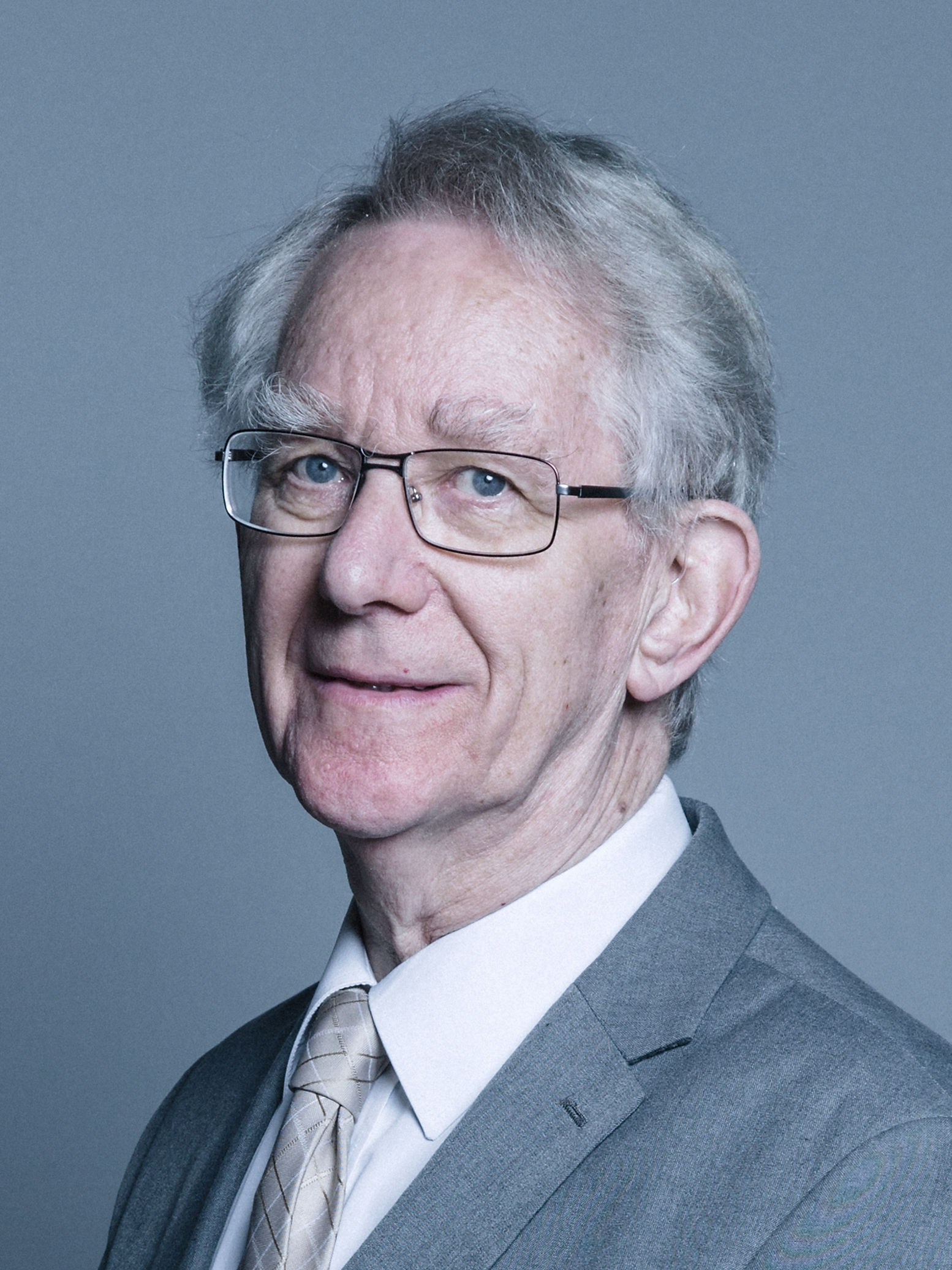 Official portrait of Lord Andrew Stunell Photo: Chris McAndrew, CC BY 3.0, via Wikimedia Commons
Official portrait of Lord Andrew Stunell Photo: Chris McAndrew, CC BY 3.0, via Wikimedia Commons
For six months before the general election of 2010, Andrew Stunell, who has died aged 81, was among the Liberal Democrat MPs preparing for a possible hung parliament. When that result eventuated he was appointed by the party’s leader, Nick Clegg, to its team negotiating for a coalition, together with David Laws, Danny Alexander and Chris Huhne.
His approach was coloured by the 1977-78 Lib-Lab pact that sustained James Callaghan’s Labour government, when he felt that the Liberals misplayed their hand and failed to achieve benefits for the party. On the Sunday after the 2010 polling day, after two days of almost incessant discussion and debate, Stunell cautioned his colleagues against rushing the negotiations, with the “real, real difficulties in legitimising Labour after they have lost so badly”. From his trade union experience witn NALGO in the 1970s, he expected Labour “to have some really feisty negotiators” but “they just didn’t have anything. They were not there at all. When we said ‘the numbers don’t add up’, they said, ‘Don’t worry, we’ve got the nationalists.’” On the other hand he was “surprised that the Conservatives were prepared to come as far as they did in the negotiations”.
As the leader of the Liberal Democrat group on Cheshire County council (1981-91) he had developed a widely accepted guide for party colleagues on councils with no overall party control. In 1988 he was a member of the Liberals’ negotiating team on the merger with the SDP that resulted in the emergence of the Liberal Democrats – though he alarmed colleagues by commenting that he enjoyed the process more than the end result.
In the Conservative-Lib Dem coalition government that resulted in 2010, he was appointed parliamentary under-secretary in the Department for Communities and Local Government, but after only two years was reshuffled out, together with three other Liberal Democrat ministers. While at the department he helped to steer through the Localism Act, which devolved a number of powers from central to local government.
Born in Sutton, Surrey, Andrew was one of four sons of Trixie, who had been a Civil Service clerk, and Robert Stunell, a mechanical engineer. From Surbiton grammar he went to Manchester University and Liverpool Polytechnic to study architecture. Then came architectural posts with the Co-operative Wholesale Society in Manchester (1965-67) and the Runcorn New Town Development Corporation (1967-81).
As a Baptist lay preacher he had a keen sense of social justice, and in 1968 he was appalled when Harold Wilson’s Labour government reneged on its promise to Kenyan Asians to have the right to come to Britain if Jomo Kenyatta’s government pressured them. Only the Liberal party opposed the government, and Stunell joined it.
He was on Chester city council (1979-90) in addition to his decade on the county council. From 1985 he was employed by the Association of Liberal Councillors, applying his experience nationally. Stunell fought his local Chester seat at the three general elections, 1979, 1983 and 1987, won by Margaret Thatcher as Conservative leader. It was a Labour/Conservative marginal and he struggled to poll a respectable third place vote. For the 1992 election, he was invited to put his name forward for the Liberal Alliance for the Hazel Grove seat in Greater Manchester, and reduced the Conservative majority to 929.
The Stunell family then moved into the constituency before the 1992 election; at the municipal election that followed he gained a seat from Labour on the local Stockport council. In the 1997 general election he was elected with a majority of almost 12,000. Liberal Democrat MPs more than doubled to 46, and Stunell’s local government experience was invaluable as deputy chief whip and then chief whip (2001-06). Under his stewardship every Liberal Democrat MP voted against invasion of Iraq.
Heading the private members’ ballot enabled him to introduce the Sustainable and Secure Buildings Act 2004, intended to make new buildings greener and safer. Stunell was also concerned at the way new MPs were expected to cope in a complex procedural and political environment, and was instrumental in getting induction courses set up for later intakes.
When he became an MP, he was pleasantly surprised at the size of the salary, having never previously looked it up, and he happily involved himself in the practical tasks at his local Methodist church, having switched from his former Baptist affiliation whilst in Chester. His interests included third world issues and astronomy. He was made OBE in 1995 and knighted in 2013. After leaving the Commons at the 2015 election he entered the Lords, and served on the Committee on Standards in Public Life (2016-22).
In 1967 he married Gillian Chorley, a music teacher who carried on her career. She survives him, along with their five children, Judith, Kari, Peter, Mark and Daniel, six grandchildren, and his brothers, John, Peter and Philip.
Robert Andrew Stunell, Lord Stunell, born 24 November 1942; died 29 April 2024
